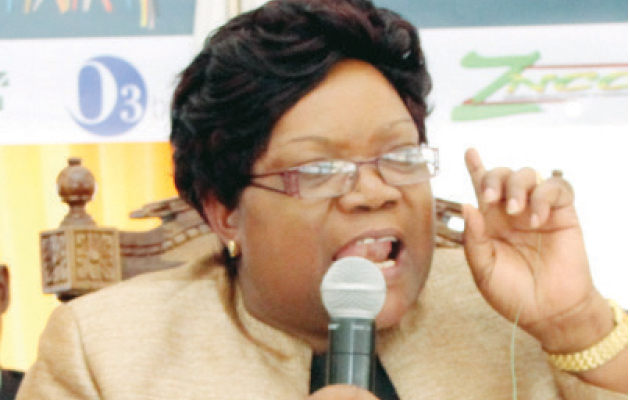Africa must eschew self-destruct ambitions

Perspective Stephen Mpofu
NEWS from two external fronts this week will certainly have quashed crushing anxieties among Zimbabweans in the diaspora about their future there and, perhaps more importantly, the news also raised hopes of more durable peace in Sadc as a value to catalyse unimpeded economic and social development in one region of the richest continent on earth but one that is paradoxically the poorest globally to the extent of holding out the begging bowl to Africa’s erstwhile oppressive rulers and under-developers.
A report that the South African government had thrown Zimbabwean migrant workers there a three-year lifeline to regularise their stay in that country could not have failed to elicit huge sighs of relief from the diasporans as well as from their relatives at home for whom the workers are breadwinners.
This pen hopes that as the region develops further various governments might wish regularly to revisit their immigration laws to facilitate, where necessary, movements of skilled labour from surplus areas to liquidate deficits in neighbouring states in an effort to equalise economic development in the sub-region.
A South African journalist reporting to the Voice of America Radio said that that country’s Home Affairs Ministry would issue the Zimbabwe Dispensation Permit allowing holders to live, work, conduct business and study in South Africa until December 31, 2017, and went on to say the beneficiaries, numbering hundreds of thousands had fled political conflict and economic problems in their native country in the past 20 years.
What the reporter omitted to say, apparently not to embarrass his employer was that more Zimbabweans went to South Africa after illegal sanctions imposed by the US and the European Union shut down factories and other job opportunities, thereby leaving thousands of workers jobless.
But the truth, however, is that since time immemorial people from this country when as Southern Rhodesia as well as those from Northern Rhodesia (Zambia) and Nyasaland, now Malawi, jumped the border at the Limpopo to seek work in South Africa while others from the two former members of the Federation of Rhodesia and Nyasaland also sought employment in this country long before black rule was dreamt of.
Probably the most famous border jumper from the northern side of the Limpopo was Hastings Kamuzu Banda who forded the Limpopo river long before the Beit Bridge was built as a formal crossing point to then apartheid ruled South Africa.
After working briefly in that country the man from Nyasaland, who would in future become the president of Malawi as Dr Hastings Kamuzu Banda, proceeded to the United States of America to study medicine and went on to complete his studies in England before going to Ghana where he worked briefly and then returned to his native country where he broke the 10 year federation which started in 1953 by leading his country to independence from British colonial rule in 1964.
From Mozambique came the news that the Frelimo government and the former rebel movement, Renamo, led by Alfonso Dhlakama had agreed to end political and military conflicts with members of the former insurgent group being integrated into the regular Mozambican army to create a conducive environment for peace and security and national development in that country.
Sadc, of which Mozambique is a member, prides itself on putting together a standby force for rapid deployment to quell conflicts in trouble spots elsewhere on the continent.
But it would be an irony of ironies where a region at war with itself to be seen trying to remove political beans in the eyes of fellow African states elsewhere.
As the wealthiest continent under the sun Africa boasts of gold, jasper, diamonds, platinum, oil and various other minerals and yet the continent still reels under crushing poverty in many of its countries because it exports its raw-materials for a song, virtually, for lack of value addition and beneficiation. Yet so much money would be earned in foreign currency to end the continents poverty were these raw-materials processed into finished products at home to fetch higher prices on the international markets.
What is more, political and armed conflicts make it difficult for some of the countries endowed with raw-materials to exploit these for the benefit of their people, witness the Democratic Republic of Congo where rebels supported “by our friends in the West” as they are known to have said, make it difficult for that mineral rich country to exploit its resources for the benefit of the majority.
South Sudan, Africa’s newest independent state, is embroiled in political and military conflict with itself making it difficult to exploit the country’s rich oil resources and work the land so much so the country faces catastrophic food shortages.
Add to that dire situation religious conflicts that have made Somalia and the Central African Republic (CAR) virtually ungovernable with the result that in the CAR families are reportedly spending up to three or more weeks hiding in the bush as they try to flee the country to neighbouring states for safety, if they are lucky to escape elimination by Muslim rebels along the way.
But what do we continue to see in spite of all those bloody conflicts? With their heads buried in the sand as it were some political parties in other countries including in our very own refuse to accept defeat in elections passed by international observers as free, fair and credible and spoil for conflict, claiming the elections were stolen from them.
Because of their insatiable power hunger and an unflinching yearning for a partnership of a black horse and a white rider, these same politicians go so far as to turn themselves over as Trojan horses for contemporary imperialism.
Their hope is to get into power even through the window if necessary when they ought to be dissuaded by political upheavals in other countries and work harder instead to win the support of the masses in the next round of voting by being peace-makers and bread-winners to the needy.
Power hunger and all that goes with it is surely ample demonstration that the political system on the continent remains far, far from maturation. Yet if the peoples of Africa desist from self-destruct political manoeuvres peace and security would be guaranteed, paving the way for an effective and efficient exploitation of the continents resources, including land, to make good the status of Africa as the richest continent on this planet.
This pen humbly believes that should Sadc succeed in restoring peace and security in the DRC as well as in sealing the peace deal in Mozambique those successes will add impetus to development for other regional groupings to emulate.
Moreover, successful elections that the regional grouping has held in Zimbabwe, Malawi and South Africa, giving hope of similar electoral achievements in other member states in future — should be seen as a feather in the cap of Sadc and a motivation to other economic and political groupings on the continent to follow suit for Africa’s tattered image to improve across the globe.











Comments